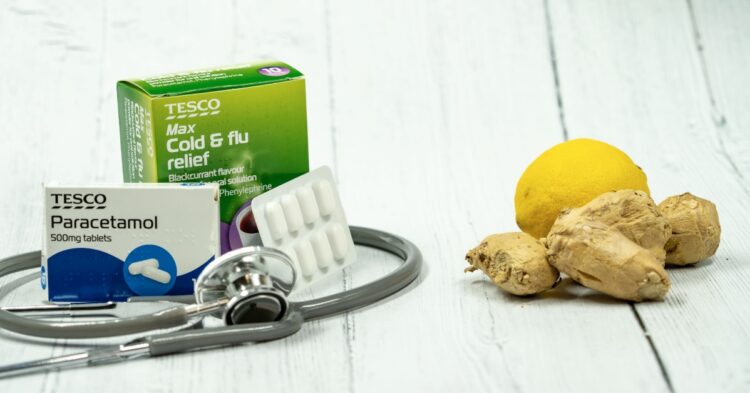Ever since the COVID-19 pandemic, people have grown more conscious about what illness they catch and how to act accordingly.
But not being able to put a finger on what exactly is causing it can be annoying. Thankfully, a doctor has revealed the key differences between a cold and flu to help you heal faster.
The “quad-demic”

The UK is facing the “quad-demic,” comprising the flu, Covid-19, respiratory syncytial virus (RSV), and norovirus, which has exerted extra pressure on the NHS.
Doctors recommend getting a flu vaccination as a preventive measure to avoid falling ill.
How it feels to catch a cold

Doctor Xand van Tulleken explained on BBC Morning Live the main differences between having a cold and the flu.
When having a cold, you will feel it more in the upper respiratory tract, with symptoms like sore throat, being bugged up by snot, and nasal congestion.
A cold can leave you functioning

The doctor explained how a “cold will come on a little more slowly.” In addition, he clarified that at the end of the day, “A cold you can keep functioning, it’s miserable, it’s no fun, but flu can be life-threatening.”
What about the flu?

The doctor described having the flu as having a sack of bricks dropping on you, it can be extremely fatiguing and life-threatening. Furthermore, the flu tends to come on quite quickly and is a “whole systemic illness.”
“Flu is the really bad one”

Some warning signs to look out for when debating whether you have the flu are “muscle pains, severe muscle soreness, weakness, exhaustion, and being short of breath.”
Moreover, the flu can worsen any health condition and cause confusion.
What you can do yourself

Usually, the flu is self-limiting, meaning it will go away on its own, but one can do some things to accelerate the process.
For instance, The NHS recommends getting enough rest and sleep and keeping yourself warm.
Additional tips for overcoming the flu

One can count on over-the-counter drugs like paracetamol or ibuprofen to help you pull through the flu.
These drugs help lower your temperature and ease the pains and aches that come with fatigue. Another thing that is pivotal to getting better is staying hydrated.
How to know when to seek help

You can seek a pharmacist for treatment advice and flu remedies if your symptoms persist. If you are seriously ill, however, it is highly recommended that you book an appointment with a doctor urgently to decide the best course of action.
Who is more prone to seek medical help

If you are 65 years old or older, pregnant, have a long-term medical condition, have a weakened immune system, or your symptoms persist after seven days, you should seek immediate attention from a doctor so he can give you a suitable treatment according to your condition.
How to avoid hospitalization

Dr Xand recommends deep breathing and stretching to “reduce your risk of hospitalization substantially.” He explained further, saying: “Literally opening your chest alters your risk of getting a severe chest infection. It doesn’t reduce it to nothing, but it makes a big difference. The same thing with movement.“

















































